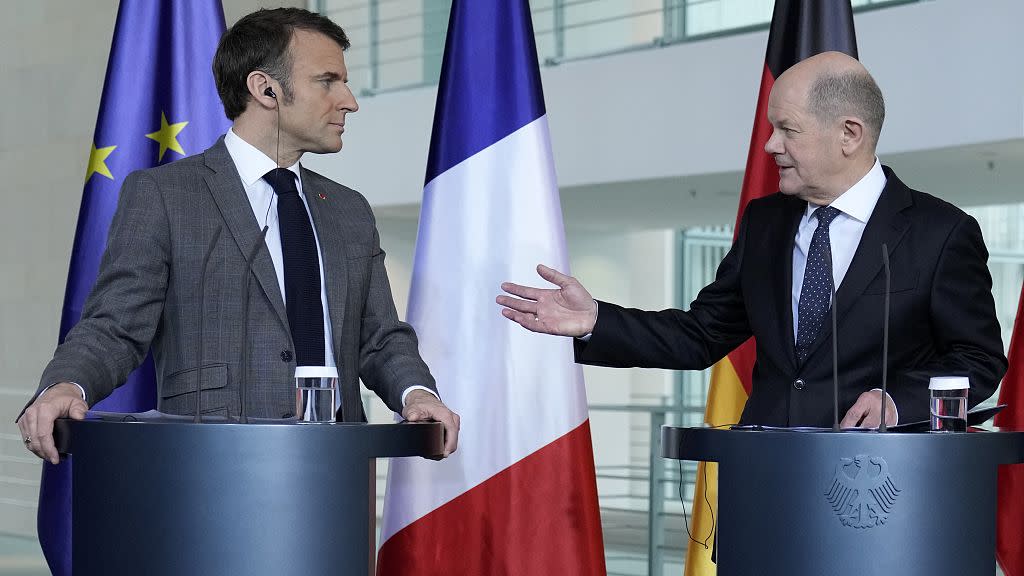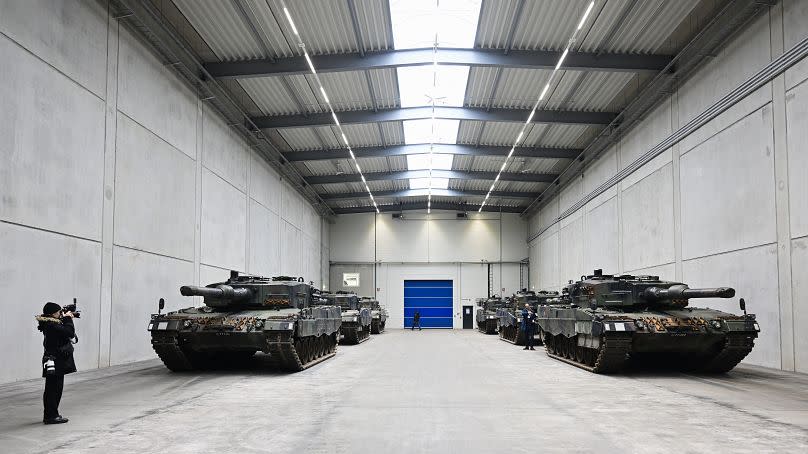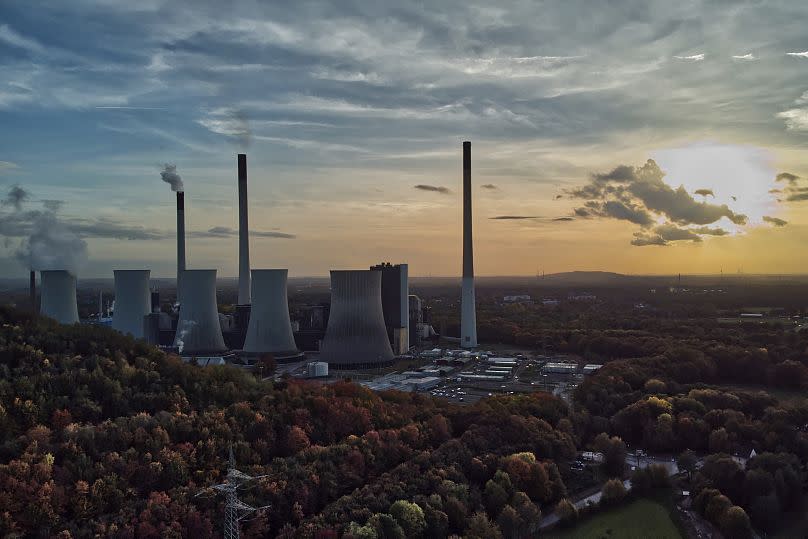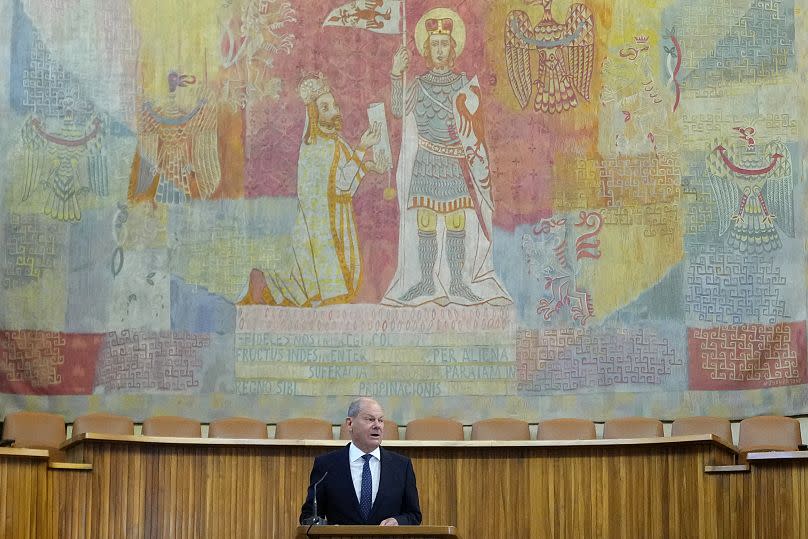Can Franco-German relations be rekindled over the Ukraine war?

At a conference on Ukraine in Paris at the end of February 2024, French President Emmanuel Macron did not rule out putting boots on the ground in Ukraine.
The announcement didn't go down well across the Rhine.
A few hours later, Germany's Olaf Scholz answered “Europe and NATO will not send any soldiers to Ukraine.”
Macron's statement was "a red line for Germany”, which fears being passed off as “warmonger” in the eyes of Vladimir Putin, according to Dr Carolyn Moser, director of a research group at Heidelberg's Max Planck Institute of International Law and holder of the Alfred Grosser Chair at Sciences Po.
During the same conference, the French leader did not miss the opportunity to recall that “many, around this table, were only considering sending sleeping bags and helmets” to Ukraine.
It was a jibe at Berlin, which announced at the end of January 2022 it would send 5,000 helmets to Kyiv - but not arms. One month later Russian tanks rolled across the border.
The situation has changed a lot since then.

After the United States, Germany is now the second largest contributor of aid to Ukraine.
According to the Kiel Institute, Germany has committed to providing €17 billion in aid for Kyiv when France has only promised €1.8bn.
"France was less hesitant to deliver heavy weapons, but it made it much less public. And until now, it hesitates to say exactly what it delivered and to what extent. It justifies it by the fact that it could then reveal defence secrets," said expert Moser.
Lack of communication is also a source of tension between Berlin and Paris.
Faced with Russia's full-scale invasion of Ukraine, Scholz announced at the end of February 2022 an envelope of €100bn to modernise the German army.
France regrets not having been informed beforehand.
Another thorn in the side of the Franco-German relationship is the European Sky Shield Initiative.
Initiated by Germany, the project, which includes 21 NATO countries but does not include France, consists of German (IRIS-T), American (PATRIOT) and Israeli (Arrow-3) systems.
These dissonances already existed before Moscow's assault on Ukraine. In 2017, Macron made a speech at the Sorbonne, calling for an overhaul of European defence - it fell on deaf ears across the Rhine.
The French and German visions of European defence differ fundamentally on one point: the role of NATO. "While France aspires to a certain autonomy, Germany prefers a transatlantic approach," explains Moser.
Series of disagreements
Defence is just part of a series of long-standing disagreements between Paris and Berlin.
Energy has historically been a major divide between the two. While France depends on nuclear power - providing around 70% of its electricity - Germany shut down its last nuclear power plant in 2023.
The war in Ukraine is now bringing the energy issue back on the table because Germany, a major consumer of Russian gas, must seek supplies elsewhere.

Another thorn in the Franco-German relations is the free trade agreement between the EU and Mercosur, the south American trade bloc.
"For Germany, free trade is essential because its economy is very dependent on exports... The opening rate of the German economy is 87%. It is considerable. France is only 60%," says Jacques-Pierre Gougeon, research director at the Institute for International and Strategic Relations (IRIS).
While Berlin is pushing for this free trade agreement, Paris believes its “environmental standards are insufficient", he explains.
Contested leadership?
The war in Ukraine has upset the distribution of roles and power relationships between the couple.
"There was a sort of tacit division of roles between a more leading France on defence issues, strategic issues, and then Germany on economic issues. And it is clear that this balance is now weakened with German ambitions on defence issues," says Gaspard Schnitzler, research director at the Institute for International and Strategic Relations (IRIS).
Franco-German relations have been relegated to the background for Berlin, which increasingly has its eyes on the East.
In his speech in Prague in August 2022, Scholz called for the enlargement of the European Union to include the countries of the Western Balkans, Ukraine and Moldova.

“Undeniably, Europe's centre of gravity will shift to the East," explains research director Schnitzler.
Experts say the balance of power is far from being redistributed, however.
"Germany and France alone account for 48% of euro area GDP, 32% of the EU population and 31% of the EU budget. So we can’t do without," adds Jacques-Pierre Gougeon.
How to relaunch the Franco-German engine?
Several ways have been suggested by observers to get the Franco-German tandem back on track.
For expert Moser, the pair must communicate better.
Gougeon pleads for opening the Franco-German relationship to other partners, in particular Poland in the framework of the Weimar Triangle.
Schnitzler recommends carrying out existing projects such as the main ground combat system (MGCS), and the future combat air system (SCAF).
Macron will visit Germany for an official state visit later this month where the two leaders are expected to discuss, among other things, priorities for the next EU mandate ahead of the European elections scheduled for June 6-9.

 Yahoo News
Yahoo News 
